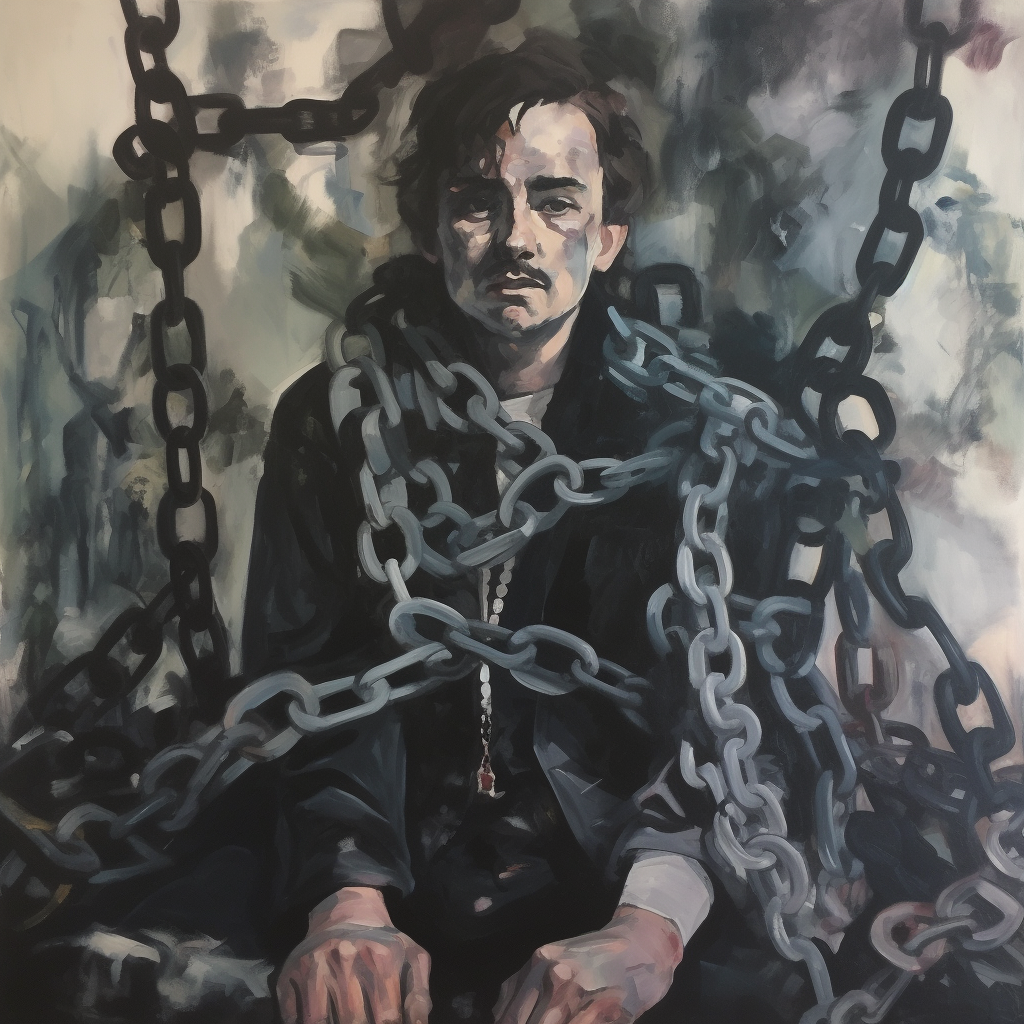It’s hard not to feel bad for the Mountbatten-Windsor family this week. Prince Harry and Meghan’s decision to share their deepest, most personal family griefs and grievances in an Oprah Winfrey tell-all interview has now reached an estimated 50 million people. Brother and sister-in-law William and Kate are in “total shock,” father Prince Charles in a “state of a despair,” and beloved grandmother Elizabeth “privately devastated”—while deeply concerned for her ailing husband Prince Philip, still recovering in the hospital from a heart procedure.
On one hand, the Windsor family has always felt understandably hard to relate to—living the “life of royalty” Disney-loving kids dream of, worth an estimated 88 billion, in power since 1901 and still presiding as a monarchy over sixteen sovereign states. On the other hand, the family shock, despair, and devastation ricocheting out this last week, in combination with the ongoing, awkwardly public nursing of deeply-held resentments and accusations, feel all too familiar to so many other families today.
Haven’t most of us seen and felt similar things in our own families? Especially in this time of heightened polarization, who hasn’t seen family dramas blow up and precious relationships implode?
All this family heartache is getting explained in a variety of ways. The top contenders: (1) heightening stress associated with forced separations, health worries, and financial burdens are straining family ties; (2) newly-sharpening political resentments are infecting our relationships at home; and (3) long-held, festering racial animus finally is being uncovered within families.
Each of these, no doubt, has some truth—or a lot of truth—to them. But none, we would argue, is an adequate enough, or “sufficient explanation”—in the language of scientists who study cause and effect”—to account for the brutal despair each of these family situations entail. Nor do any of these prevailing explanations, we believe, lead families practically to any solutions that would ultimately get at the roots of these aching family pains. While we may never know the whole truth of what happened inside the Windsor family, there is one truth we can be certain about.
No doubt, if it were possible to have less stress over money and health and more ability to be physically close again, that would help any family today. And so would toning down the simmering political animosities, and any racist attitudes that may unfortunately still remain. But where would the combination of all those welcome improvements leave a family?
Imagine, in your mind’s eye, a family wholly devoid of any racist attitudes, political resentments, or financial/health worries. Is that same family also happy? And feeling true closeness and belonging together?
Maybe.
In our own experience, sweetness in family relationships has depended on far more than an absence of resentment or worries. It has relied on the presence of something else. Something that goes by lots of names.
Including—kindness, gratitude, generosity, grace, forgiveness, patience, compassion, tenderness.
Every one of these can be wrapped up in another word that the Apostle Paul proposed just under 2000 years ago as encompassing them all: Charity— which includes in its descriptors, being “not easily provoked, suffering long, enduring all things, bearing all things.”
We can’t help but wonder what a little more of any of that could have meant for the relationships between the Duke and Duchess of Sussex and the rest of their now-bitterly-estranged family. One of the most wrenching allegations Meghan raised was hearing from Harry that among some “royal insiders,” as Meghan put it in the interview, “there were also concerns and conversations about how dark [her baby’s] skin might be when he was born”—with palace officials asking “what that would mean or look like.”
In the Black Lives Matter era, that accusation more than others has prompted a flurry of additional commentaries—with extensive reporting weighing the possibility of hidden racism in the royal family and the British press, leading Prince William to insist to a reporter in passing just today, “we’re very much not a racist family.”
Meghan’s own estranged father raised the possibility the original hurtful comment about skin tone was never intended in the way Meghan and Harry took it: “I’m guessing and hoping it’s just a dumb question from somebody. It could be that simple, that someone has asked a stupid question rather than being a total racist.”
Of course, no one can know for sure what happened, including perhaps Harry and Meghan themselves. That hasn’t stopped journalists this week, however, from obsessing over trying to figure out what truly happened (‘Who said it? How deep does the racism go?’), and what the repercussions may be (‘Will there be an investigation? Might this finally be the day Britain confronts endemic racism? Can their relationships ever be salvaged?’)
[As an aside, rather than seeking truth that would help enhance public discourse, it sometimes seems as if the central pastime of many media outlets has become what the Apostle Paul also once called “rejoicing in iniquity” and “thinking evil.” We can do better!]
While we may never know the whole truth of what happened inside the Windsor family (and while competing narratives will likely remain entrenched, as they usually are), there is one truth we can be certain about, especially if you are a believer in Christ: wherever there exist deep-set resentments and grievances like this, they don’t have to go on forever.
They can be healed. All things can, ultimately.
Not simply by rooting out damaging attitudes or biases—although that’s also clearly important—but also by cultivating in our hearts together something else that is beautiful, and settled, and which “fails not.”
Something that the prophet Moroni calls “perfect love” and the “pure love of Christ,” which he adds, “casteth out all fear.”
We’re not raising this as another lofty, pie-in-the-sky religious ideal, but rather as a consummately practical possibility: what can make the real-life difference between some random, hurtful comment made in any of our families festering over many years, or not. Imagine, for instance, if Meghan had been able to find in herself just a little more grace to work through concerns her sister-in-law expressed about bridesmaid dresses, or whichever careless “palace official” dared to raise curiosities about her baby’s skin color.
None of this is to suggest important boundaries were not crossed, or that prejudice shouldn’t be confronted. (It should). And in cases where words or actions have caused deep wounds, it’s clearly unwise to press people into premature forgiveness—which can even re-victimize them further. If enduring and managing grief is all you can do, puppies are a good way to go.
We’re also certainly not saying that doing the work to find this kind of reconciliation is easy. But consider the alternative: Does any of the seething resentment and rippling despair on display for a worldwide audience this week seem easy, Meghan and Harry?
Not in the least. Reports are that Harry’s father has stopped taking calls from his son. And apparently, the queen has adopted two new corgi puppies to help her get through the crisis, after promising not to adopt any others because she didn’t want pets to outlive her.
If enduring and managing grief is all you can do, puppies are a good way to go. But what if so much more is possible?
It is. That is the witness of believers all around the world, who manage to navigate family difficulties in a way that eventually draws them closer. And that’s Michelle Obama’s hope as well, when asked about the saga recently:
My hope is that, when I think about what they’re going through, I think about the importance of family and I just pray that there is forgiveness and there is clarity and love and resolve at some point in time. Because there’s nothing more important than family.
Amen, Michelle! We hope that the Windsor family will experience this one day soon as well.
Especially considering the fairy tale that this started as. Don’t all fairy tales, though, have something terrifying where you think all is lost for the prince or princess?
The good news is that what could have saved all these people some of this heartache so far, is still available today. And the same thing that could save Meghan and Harry right now is what can save us all.
Whatever sacrifices we might need to make to get there—of our pride, our ego, our envies—are so worth it. And along the way, a lot of other nuisances get “cast out” of our lives too: resentment, grievance, grief, despair, and bitter estrangement.
Doesn’t that sound worth it, especially compared with the exhausting alternative?
It totally is. For the Windsors. And for all the rest of us too.

















